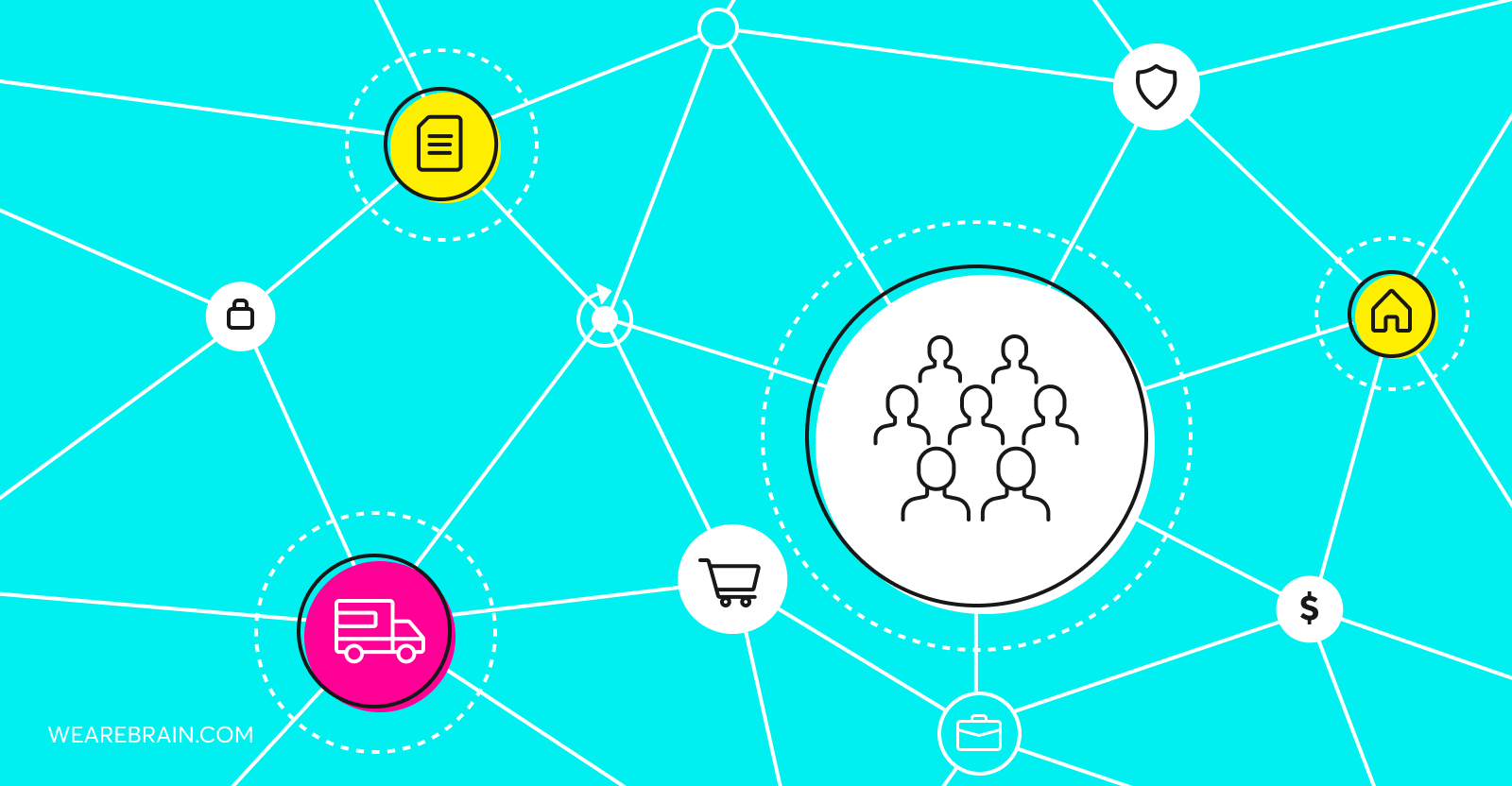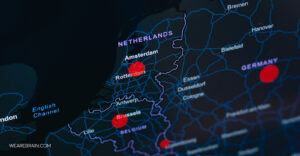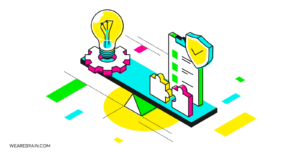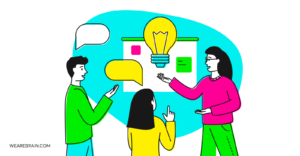DAOs 101: what they are their future impact

Explore DAOs, a revolutionary blockchain-based framework, offering a democratic, decentralized model for organizational governance and decision-making.
Key takeaways
- DAO basics: Blockchain-driven entities enabling decentralized, democratic governance.
- Operational mechanism: Relies on smart contracts for transparent, community-based decision-making.
- Traditional vs DAO: Shifts from hierarchical to a consensus-driven approach.
- Key examples: Notable DAOs include ConstitutionDAO, Uniswap, and Compound.
- Challenges and security: While promising, DAOs face operational and security challenges.
- Future outlook: Potential to disrupt traditional business and investment models, emphasizing community and democratization.
Web3 and DAOs
Blockchain technology and Web3 are ushering in an era of radical decentralisation and community-governed ventures that are reshaping our society in real time. We are witnessing the rapid decline of traditional top-bottom business hierarchies in favour of democratic, peer-to-peer accountability.
Naturally, this structural and potential societal shift is causing some to rethink the future of business and ownership. This comes in the form of DAOs, a radical departure from traditional business structures that leverage code and blockchain technology to decentralise ventures, essentially creating a new working model for the future.
But what are DAOs exactly? How do they work, and what potential do they possess to reshape our future?
What is a DAO?
As its name suggests, a Decentralised Autonomous Organisation (DAO) is an organisational entity that has no central ownership and leadership. They are internet-native communities collectively managed and owned by their members according to rules rooted on a decentralised blockchain. They serve digital communities to effectively coordinate funds and labour via smart contracts.
DAOs are akin to open-source organisations of digital communities as a democratic means of coordination that any collective group of individuals can create with minimal barriers to entry. They have built-in treasuries that members cannot access without the approval of the group. All decisions are made collectively by democratic means (proposals and votes) to ensure every member’s voice is heard.
According to BanklessDAO, DAOs are:
- Decentralised because they are community-owned, grassroots-driven, and loosely organised (in contrast to a hierarchical, tightly-structured centralised organisation like a bureaucratic agency or company).
- Autonomous because their shared rules and shared treasuries are encoded and automatically enforced on the Ethereum blockchain.
- Organisations because they’re groups of people that associate and coordinate around specific purposes.
In the past 5 years, the DAO ecosystem has rapidly evolved, spurred by collective empowerment and what the business and working landscape might potentially look like in the near future. Currently, DAO treasuries hold over $11.5 billion worth of assets under management (AUM) and roughly 2.1 million governance token-holding members.
Governance tokens are blockchain tokens that provide users/owners voting and management rights within their DAO. Those in possession of governance tokens are able to create and vote on proposals specific to their DAO.
How do DAOs work?
The key to the success of DAOs is smart contracts — lines of automatically executed code when a set of criteria is met. Smart contracts essentially establish and define a DAO’s rules and hold its treasury within it.
Once a smart contract is live on a blockchain it is impossible to change, making it transparent and secure for all parties. If anyone tries to hack the code to make it do anything other than what it is designed to do it will automatically fail. With DAOs’ treasuries locked into a smart contract, it means that nobody is able to access and spend the money without the approval of stakeholder members.
Members with a token stake in a DAO receive voting rights that can influence how the organisation operates by either helping to decide on decisions or by creating new governance proposals.
Thanks to smart contracts, DAOs are fully transparent and autonomous because they are built on open-source blockchains: meaning anyone can view their code and audit their treasuries.
DAOs vs traditional enterprises
Unlike traditional organisations that operate on a top-down hierarchy of decision-making, DAOs instead work off a bottom-up approach where decisions are made through member consensus. However, this does not mean that every decision is made by every member.
Rather, decisions are made in two steps:
- Soft consensus: made by signals of preference by the community in an unofficial capacity to gauge the level of interest.
- Hard consensus: made by a collectively accepted voting tool, like a poll or ballot system.
In traditional organisations, major decisions are made by a small group of people endowed with decision-making authority for the business, usually a CEO or a board of directors. These decisions govern every employee, for better or worse, and the success or failure of the business rests with these individuals.
DOAs embrace democratic approaches to decision-making and rely on the input of the community, with varying levels of skills and knowledge, to ensure decisions that are made aim to benefit each member. Membership in a DAO is usually ensured through the ownership of a DAO token.
DAO examples
Currently, there are 4,833 DAOs in operation. Each DAO has a specific function hinged on the shared values of its community. There are gaming DAOs, social DAOs, investment DAOs, and many more. Below is an overview of the current DAO ecosystem.
And here are the most notable DAOs:
ConstitutionDAO
The now-defunct ConstiutionDAO played a major role in bringing DAOs into the public eye in 2021 with its outlandish and cheeky aim to purchase an original copy of the United States Constitution. The group managed to raise $47 million in Ether cryptocurrency from its members. Unfortunately, it lost to a bid at the Sotheby’s auction and has stayed true to its original promise of refunding its members.
Uniswap
Uniswap is a decentralised exchange that generates automatic markets of liquidity asset pairs. It allows for flash transactions and liquidity allocation by specific price margins. Its treasury holds over $2.3 billion and it has over 320,000 members.
Compound
Compound is an algorithmic, autonomous interest rate and lending protocol based on liquidity pools that is governed by its token holders. Its governance method has been forked by various DeFi protocols. Its treasury holds over $372 million and it currently has 192,200 members.
Augur
Augur is an open, global prediction market protocol and peer-to-peer decentralised exchange that allows users to create a prediction market on any topic. It is mostly used for sports betting. Its total account value is roughly $15.5 million.
DAO downsides
DAOs aim to fundamentally change the unequal distribution of power and authority in typical businesses through smart contracts, transparency, and non-hierarchical ownership and governance. However, issues are likely to arise when automation is used to overhaul business processes that traditionally incorporate human-centric approaches.
Specific use-case
Currently, DAOs are better suited to operations that rely on clearly defined, rules-based tasks such as simple financial services. These types of ventures do not require frequent dynamic reiteration and can be operated by algorithms.
But for more complex organisations that are predominantly driven by a company mission and are designed for long-term growth where continuous iteration is required to adapt to fluctuations in the market, DAOs fall short. Long-term organisations require flexibility to allow for the adaption and iteration of strategies according to real-time data. Informed governance is crucial in this instance and agile leadership is the most effective way to ensure continued growth.
Strategic blindspot
DAOs require every major decision to be voted by all stakeholder members who don’t necessarily need to have any particular skills or qualifications for their opinions to be heard. Apart from the time delays caused by gathering consensus, DOAs might not always have the right people to lead them.
This makes strategic decisions that require a particular degree of understanding and involvement impacting the success of the organisation very difficult. The larger the DOA is, the more the chances that all stakeholders are not sufficiently qualified to make important business decisions. Depending on the legal structure of the DAO, incompetent leadership will lead to bad decisions that will negatively impact all members.
Potential threat
Additionally, we can’t talk about the potential drawbacks of DOAs without mentioning the infamous hack of The Decentralised Autonomous Organisation (The DAO) back in 2016. The DAO was the first example of what DAOs look like today. It was designed to be a venture capital fund for the decentralised and crypto market. It was leveraged by smart contracts on the Ethereum blockchain and was open-source code. At its highest, the total Ether from The DAO was worth over $250 million.
But in 2016, a hacker found a loophole in the human-generated code and drained the fund of over $70 million in a few hours.
Unfortunately, The DAO failed before it realised its potential but the impact of the hack provided a tough lesson for the DOA community. Since then, the hack has ensured greater security measures for DAOs and the potential for similar hacks in the future has been completely nullified.
The future of DAOs
DAOs are revolutionising how start-ups and businesses are run. The user-first and community-owned approach runs in contrast to traditional business hierarchies that can usher in a new era of business in the future.
The recent history of DAOs shows that they are able to raise considerable funds in a short space of time mainly through crowdfunding. Traditionally, VCs fund startups in exchange for controlling shares and authority to make major business decisions, effectively shaping the future outcome of the business.
But with the Web3 movement, decentralisation at every level is fundamental. Thanks to blockchain technology, new businesses provide users and members greater control over the services they use and support. Patrons now have a say in the creation of new Web3-based companies, removing the monopoly traditional VCs have on the businesses they invest in.
As a potential insight into how DAOs might evolve in the future, popular NFT moguls Bored Ape Yacht Club released their utility coin, ApeCoin, backed by its own DAO. Bored Ape Yacht Club is managed by Yuga Labs which has already made some significant moves in the Web3 space, but this is an example of how NFT collections can eventually set up DAOs and launch tokens to allow more people to invest in the brand and have some say in the direction of the project.
DAOs provide patrons with access to opportunities previously reserved for VCs and incentivise members to work together to reach a shared objective.
With the traditional business model turned on its head thanks to DAOs, the potential for structural shifts in other areas of society may come sooner than we think.
David Roman
Working Machines
An executive’s guide to AI and Intelligent Automation. Working Machines takes a look at how the renewed vigour for the development of Artificial Intelligence and Intelligent Automation technology has begun to change how businesses operate.







